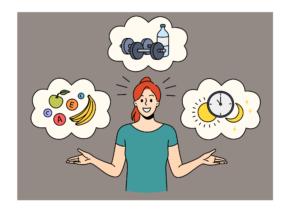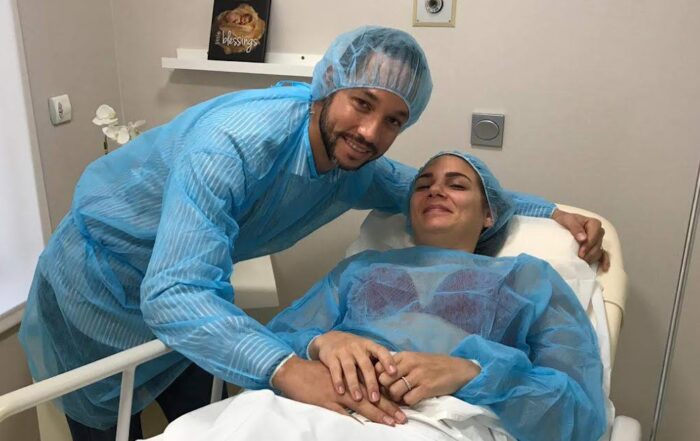Fertility Labs: Learn More While “Waiting” for an Infertility Diagnosis
Have you experienced this frustrating road block? You’ve been trying to conceive with no luck, but technically you haven’t been trying long enough to warrant any extensive lab work to be ordered by your physician. This pickle can leave you stranded and stuck without information you could act on. If you’re halted in this strange in-between time, I wanted to provide you with a list of labs that you could request from a practitioner outside the traditional health care system.
The good news: you can advocate for yourself. With telehealth on the rise, and a variety of growing practitioners involved in fertility, you may be able to sidestep the red tape to gather information about your body. Depending on the state you live in, you may be able to find a practitioner willing to order and interpret lab results for you in person, and therefore much faster than your hospital-based primary care (who often has their hands tied by insurance… it’s not because they don’t want to help you).
Luckily, this is the case for us in Iowa. Labs can be ordered by a variety of practitioners, including chiropractors, midwives, and nurse practitioners. I love data, and think it’s helpful to have this baseline information about your health status whether you are trying to conceive or not. Here are some helpful labs for women of childbearing age:
The Cycle Day 3 labs:
- FSH (follicle stimulating hormone) – a chemical messenger that triggers the growth of eggs
- Estradiol – The E2 form of estrogen mainly produced by the ovaries
- LH (Leutenizing hormone) – This hormone triggers the release of eggs
- AMH (anti-muellerian Hormone) – While AMH doesn’t predict your fertility, it can give some insight into your ovarian reserve/how many eggs you have
Tested 7 Days after Ovulation (if possible):
- Progesterone – this hormone is responsible for preparing the uterus for pregnancy and sustaining a healthy pregnancy.
Thyroid Panel (A full one! Not a tiny cheater panel!)
When requesting a thyroid panel, it’s helpful to hand this exact list to the practitioner. Every provider has a different idea in their head of what a comprehensive thyroid panel is. This will give you more information than the standard panel:
- TSH
- T3 (free) and T3 (total)
- T4 (free) andT4 (total)
- TPO (thyroid peroxidase) – checks for thyroid autoimmune
- TGAb (thyroid antibodies) – checks for thyroid autoimmune
General Health Markers
- Fasting insulin AND HgA1c – Blood sugar and insulin sensitivity are important for fertility, particularly with PCOS
- 25-OH Vitamin D
- ANA – A marker of overall autoimmunity
Other Hormones
- DHEA and DHEA-s
- Testosterone (free and total)
Some “Out of the Box” Ideas
Patients often come to me with the following scenarios:
- They’re not not trying, and think they want to have a baby soon. They want to know how to boost their health before they conceive.
- They’ve had irregular or absent cycles, but the traditional tests (listed above) didn’t give them any information they could take action on.
- They’ve had no luck trying to conceive, even though all the labs mentioned above have come back normal.
When this happens, there are still two more comprehensive lab tests that can be worth your time and money to help you reach optimal health.
The NutraEval
If I could write a love letter to a lab test, it would be for the NutraEval, hands down. It is a comprehensive metabolic test that covers gut health, methylation, vitamin and mineral need, cellular damage, and toxin levels all in one test. With a blood and urine sample you can get roughly 13 pages of data that give you direct action items to improve your health. It can also help guide which direction to focus your energy (for example: upping your antioxidants, cleaning up a gut infection, or detoxing heavy metals). Bonus: it can be performed on both men and women.
The DUTCH Test
The DUTCH test is a more comprehensive hormone and adrenal test. It doesn’t just measure your hormones on one day of your cycle but throughout your cycle. For some patients this measurement is more helpful because the timing of your progesterone or estrogen levels could be a bigger issue than the amount of your progesterone or estrogen. Some DUTCH tests also evaluate cortisol levels (the stress hormone) which can rise at inopportune times of the day, disrupting your body’s master clock, and therefore other hormones related to fertility.
You’ve Got Options!
Healthcare is evolving to meet the patient’s needs, but sometimes you have to step outside the traditional system to get more information. Ideally, the team of providers you build around you would be willing to work together to help you achieve the best outcome. It can be exhausting to coordinate care and information between different facilities and providers… but if you’re on a fertility journey, you’ve likely found you have to take charge anyway. No one knows your health better than you do, and that’s ok! I hope this sheds some light on alternative ways to gather information about your health.
We are incredibly grateful to all of our writers, who open up their hearts and share their journey with this community. If you would like to connect with one of our writers, please contact us.
The views and opinions expressed are those of the authors and do not necessarily reflect the official policy or position of the Hopeful Mama Foundation. Our authors provide content reflecting their views and do not intend to malign any religion, ethnic group, club, organization, company, or individual.
Recent insights, guides, & resources.
Finding Hope on the Path to Motherhood
Rafaella Elias- Guest Author2026-01-28T13:03:42-06:00January 24th, 2026|
Sip & Shop for Hope: Presented by Donor Nexus
Hopeful Mama Foundation2025-12-15T13:43:26-06:00December 15th, 2025|
Seasonal Pressure
Maddie Moree2025-11-21T16:07:01-06:00November 21st, 2025|

About the author:
Dr. Hannah Anderson
Dr. Hannah Anderson is a chiropractor at Corridor Wellness in downtown Cedar Rapids, Iowa. She specializes in women’s health, fertility, pregnancy, and pediatrics. She works with patients of all ages in regards to nutritional, emotional, and physical health by addressing the whole person rather than pieces. Dr. Hannah is certified by the ICPA in pediatric and maternal health care, trained in Neuroemotional Technique, Quantum Neurology, and Mercier Therapy. She is passionate about helping women during all phases of the motherhood transition, preconception through postpartum. You can find her at corridorwellclinic.com or on Instagram @drhannahanderson.






